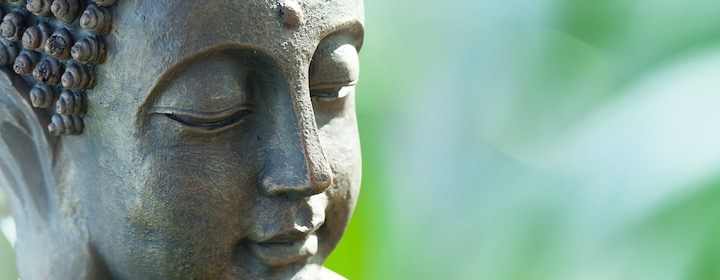We are all grateful that we are able to maintain contact with one another and practice together through technology during this period of prolonged physical isolation. One of these days though, we hope we will be together in physical practice space again. Our yearning is to share embodied presence with one another. We miss the ability to touch, to be beside, to feel the rhythms of each other’s hearts as we practice. May this be soon.
But for some of us, returning to physical practice spaces will not be simple. Those of us who daily deal with physical challenges will once again face barriers to our participation. In this Covid-restricted world, while we wait to meet in person again, the invitation in front of us is to explore how all of us might grow inclusion and further open our hearts to one another.
We know there can be physical barriers for participation. What we may not know is that expectations, norms and concepts can also create barriers to participation. When we enter a shared practice space, the room takes a familiar and expected shape. We hold a conceptual norm of what this space should be and expectations of how it should be used. That concept and those expectations may limit the ability to respond skillfully when the sangha is asked to modify the space for someone who has a challenge that includes the need to practice outside of the norm. This is particularly true if the disability is hidden.
I, Alison, wear what is known as an “afo” or “ankle-foot-orthotic.” It’s a brace that fits inside my shoe and is connected up my calf. When I wear long pants it’s very difficult to see that I am wearing the afo. The expectation for entering the meditation hall is that we all take off our shoes. The form of the practice dictates shoe removal to honor the practice and the hall. But taking shoes on and off is not simple for me and I am safer while I am wearing the afo than when I am not wearing it. So I asked permission of our retreat teacher to leave on my shoes in the meditation hall, which he kindly gave me.
I knew that the other members of the sangha would be expecting me to honor the form. I knew people might misinterpret what I was doing and be disturbed by my shoes. Therefore at the beginning of the retreat, I spoke up and told everyone why I was wearing shoes and that I had been given permission. For me this was not a problem. For others of us who have challenges this level of self-disclosure may be very uncomfortable.
The expectations and concept of what a practice space should be may inhibit us from asking for accommodations. We may feel that we are “wrong” to ask for a change that affects others in the sangha in order to be able to share the space and the practice with them. We may feel that we are taking away from the group experience, singling ourselves out as “other”, unwelcome, judged and separated from everyone else, when we must self-disclose and discuss our dis/abilities in order to request that change. Many of us have spent a lifetime trying to fit in and not cause problems for other people. Many of us have been told that meeting our needs is disruptive to others who are practicing with us.
When we return to in-person practice will there be room for those of us with challenges? Can the sangha grow stronger and the overall experience of practice deepen for the whole sangha when we are met, just as we are? And in meeting us how do we honor the needs of everyone else in the sangha?
I, Tara, have global pain and a muscular/skeletal condition that are both adversely affected by extended periods of sitting. When I attend a retreat will it be possible for me to have permission to get up, to meditate standing in gentle motion in the hall? If needed, would there be permission for me to lie down? Many people attempting to concentrate and focus their attention might feel as if I were interfering with their practice. Their expectations and concept of a meeting hall in a retreat might be that everyone sits still.
In the Affinity Sangha for People with Dis/Abilities and Deaf People we do our best to provide practices that include the deep mindful awareness and the non-judgmental friendliness that can encourage everyone to embrace their own individual challenges and practice needs.
This is reasonably easy to do on Zoom. Once we meet in person again, can including those of us with challenges add spaciousness to the expectations and the concept of the form for the whole sangha? There is great wisdom and compassion in the members of the IMCW community. Our combined sangha is precious. As we move into 2021 and all it will bring, we know that if we can talk with one another and together meet the challenges of inclusion, we will as Frank Ostaseski says, “Trust in the wisdom of our own good hearts.” and find the ways in which we can engage these questions, grow one another’s wellbeing and deepen our mutual practice.
Alison Shapiro and Tara Beech guide the Sangha for People with Dis/Abilities and Deaf People. This sangha meets weekly via Zoom during the pandemic. ASL and closed captioning are provided. More information cam be found on the sangha page.



